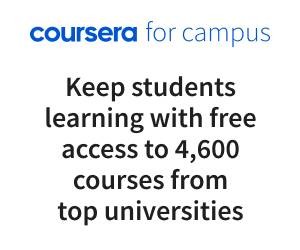Universities must be flexible in their approach to skills training if they are to keep up with employability needs, experts warn
The Covid-19 pandemic has forced universities not only to shift rapidly to online learning but also to reassess the way skills are taught to students going forward.
Attending a session at Times Higher Education’s Europe Universities Summit, experts met to discuss the acceleration of Europe’s new skills agenda, including how to encourage students to think about their own skills development and what benefits industry partnerships can bring.
Andrey Sozykin, vice-rector of academic development at Russia’s Ural Federal University, said there was no doubt that Covid-19 had led to an increase in demand for digital skills. But while this has been easy for some disciplines, others – including engineering and medicine – require physical equipment and face-to-face learning.
João Cerqueira, professor and associate dean of undergraduate medical education at the University of Minho, agreed that medical studies was an interesting example of change during the pandemic. As national lockdowns and travel restrictions forced more medical consultations to go online, the University of Minho realised that it too needed to adapt by incorporating telemedicine into the medical curriculum.
“Suddenly, we were training students with a lot of skills that, in my opinion, will be necessary in the future, because telemedicine is here to stay,” Cerqueira said. The challenge, he added, was incorporating those digital skills with soft skills – which translated differently on-screen.
Nayeli Wild, director of partnerships for EMEA and APAC at Coursera, said analysis of the platform’s users showed a change in learning patterns and course demand. “Covid has changed the world, as everybody knows, but it’s affecting women workers without degrees, ethnic minorities, and [these] populations…are looking to upskill and reskill.”
When asked how institutions could address these shifting employability needs, both Sozykin and Cerqueira said their own universities were building curricula around problem-solving – for which partnerships with industry were crucial.
Sozykin’s institution has also experimented with awarding non-traditional credentials, for example certificates via online platforms or through companies the students work with directly – but he said the topic was “controversial. We are not sure of the impact yet.”
While there had been some pushback against online learning from medical students, in particular, universities are having to re-educate students to expect a combination of skills-based and knowledge-based approaches in their education.
Cerqueira said that, with this in mind, it was important for teachers to be motivated and enthusiastic to set a precedent. “From the start, we tell them that society is changing and knowledge is not the only cornerstone of medical practice any more,” he said. “The mindset of the curriculum is really the transformation of society. We have to prepare our students to be physicians in this new society. The earlier we start that, the better.”
To make blended learning successful, it was important to work with students in designing courses, panellists agreed. “There’s a big debate at the moment about what’s important for digital learners,” said Wild. “They all need flexibility, but interestingly, flexibility not only in terms of what they’re studying but how they’re studying,” she concluded.
Watch the session on-demand above or on the THE Connect YouTube channel.










































































